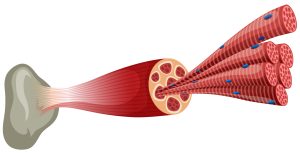
This post may contain affiliate content from which we earn a small commission at no additional cost to you. Read our full disclosure.
In the past few years, a way of losing weight called “intermittent fasting” has become very popular. This means you eat at certain times and don’t eat at other times. It’s like a game with our body’s energy.
Now, we want to know: How much weight loss to expect with intermittent fasting? It’s not just about what you eat but when you eat it. Many people say it works for them. So, let’s find out in simple words how this interesting way of eating helps people lose weight.
The Basics of Intermittent Fasting
The fasting operates on the premise of restricting the time window during which one consumes food.
Common methods include the 16/8 method, where individuals fast for 16 hours and eat during an 8-hour window, and the 5:2 method, which involves eating regularly for five days and significantly reducing calorie intake for the remaining two days. The goal is to induce a state of fasting, allowing the body to tap into stored fat for energy.
Choosing your intermittent fasting plan
There are several different fasting methods. Popular options include:
- the 16:8 method
- the 5:2 diet
- the Warrior diet
- Eat Stop Eat
- alternate-day fasting (ADF)
The 16/8 method
In the 16/8 fasting plan, you eat only during an 8-hour window each day, like noon to 8 p.m. or 9 a.m. to 5 p.m., and abstain from food for the remaining 16 hours, offering flexibility based on your preferred schedule.
The 5:2 method
The 5:2 diet involves eating normally for five days and cutting calories to 500 per day for the other two days each week.
Eat Stop Eat
Eat Stop Eat is a fasting method where you don’t eat for 24 hours on one or two non-consecutive days each week, aiming to lose weight by reducing overall calorie intake while eating normally on other days.
Alternate-day fasting
Alternate-day fasting involves fasting every other day, with some variations allowing around 500 calories on fasting days, and it has shown effective weight loss benefits.
Understanding Caloric Deficit: How Much Weight Loss to Expect With Intermittent Fasting?
When we talk about losing weight, one important idea is using up more calories than we eat, and that’s called a “caloric deficit.” fasting is a way of eating where you have specific times for eating and fasting. This can help with weight loss because it shortens the time you spend eating, making it harder to eat too many calories.
When your body doesn’t get enough calories from food, it starts using stored fat for energy. This process leads to losing weight over time. So, fasting helps create a situation where your body uses its stored fat, and that’s how it supports weight loss.
Metabolic Changes During Fasting
When you do fasting, your body goes through changes that help you lose weight. One thing that happens is that your body becomes better at managing sugar in your blood because fasting makes insulin work better.
Also, fasting makes your body release a hormone called norepinephrine, which helps break down fat cells. These changes in how your body works make it easier for you to lose weight.
Preserving Lean Muscle Mass

A common concern with any weight loss strategy is the potential loss of lean muscle mass. Fasting, when done correctly, has been shown to preserve muscle mass while promoting fat loss.
The body’s production of growth hormone increases during fasting, providing a protective mechanism for lean tissue. This distinguishes fasting from other restrictive diets that may lead to muscle wasting.
Hormonal Impact on Weight Loss
Hormones are like messengers in our bodies that control things like hunger and how fast we burn calories. When we do fasting (which means eating at specific times and not eating at others), it can change how these hormones work.
One hormone, called ghrelin, makes us feel hungry. When we fast, ghrelin levels go down, so we don’t feel as hungry.
Another hormone, called leptin, helps us know when we’re full. Fasting might make our bodies better at listening to leptin, so we know when to stop eating. This can help us lose weight because we’re not eating too much.
So, when we do fasting, our hormones can make us feel less hungry and help us realize when we’re full, making it easier to lose weight.
Weight loss can also come in handy in controlling blood pressure there are much scientific research on it if you are more interested, you might find more insights in our article on ‘Can Weight Loss Lower Blood Pressure?‘
Realistic Expectations and Individual Variability
While fasting can be an effective tool for weight loss, it’s essential to manage expectations. Individual responses to fasting vary, and factors such as age, gender, and overall health can influence outcomes.
Some may experience rapid weight loss, while others may see more gradual changes. It’s crucial to approach fasting as a sustainable lifestyle choice rather than a quick fix.
Potential Pitfalls and Considerations
Intermittent fasting may not be suitable for everyone, and certain individuals should approach it with caution. Pregnant women, those with a history of eating disorders, or individuals with certain medical conditions should consult with healthcare professionals before embarking on a fasting journey.
Additionally, it’s crucial to prioritize nutrient-dense foods during eating windows to ensure the body receives essential vitamins and minerals.
Long-Term Sustainability and Lifestyle Integration
For intermittent fasting to be a successful weight loss strategy, it must be sustainable in the long run. Rather than viewing it as a temporary solution, individuals should explore ways to integrate fasting into their lifestyles.
This could involve finding an eating window that aligns with personal preferences and daily schedules, making it more likely to become a lasting habit.
Intermittent Fasting and Cellular Autophagy
Another noteworthy aspect of fasting is its potential impact on cellular autophagy. Autophagy is a cellular recycling process where the body breaks down and removes damaged cells, promoting cellular renewal.
Some studies suggest that fasting can enhance autophagy, contributing to improved cellular function and potential health benefits beyond weight loss.
Psychological Benefits and Mindful Eating
Beyond the physiological changes, fasting may offer psychological benefits that contribute to weight loss success. The structured eating windows create a sense of discipline and routine, helping individuals develop mindful eating habits.
Increased awareness of food intake and hunger cues can lead to healthier food choices, reinforcing a positive relationship with food and supporting long-term weight management.
Combining Intermittent Fasting with Physical Activity
While intermittent fasting alone can contribute to weight loss, combining it with regular physical activity can amplify the results. Exercise not only burns calories but also complements the metabolic adaptations induced by fasting.
Additionally, exercising in a fasted state may enhance the body’s ability to utilize stored fat for energy, further supporting weight loss goals.
Beyond Body – Your Ultimate Guide to Weight Loss
Beyond Body stands out by offering personalized meal and exercise plans tailored to individual preferences. The meticulously designed 28-day customized meal program turns the pursuit of healthy eating into a delightful adventure, nurturing a passion for both nutritious and tasty meals.
Beyond Body goes beyond being a mere weight management tool; it serves as a personalized guide, steering you towards a more fulfilling and healthier life path.
That said, if you’re interested in trying this app read our full Beyond Body review then click here to take a quick quiz and get started. You can even get up to 60% off by using the code below:


Beyond Body - 67% Off Discount Code
Final Words
So, how much weight loss to expect with intermittent fasting?
In the end, intermittent fasting can be a helpful tool for weight loss, but it’s not a magic trick. Remember, it’s not just about skipping meals; it’s about finding a balance that works for you.
Listen to your body, stay consistent, and pair it with a healthy lifestyle. Weight loss is like a journey, and fasting can be your companion, but the destination is a happy and healthy you.
- Online Vs In-Person Certification Courses: Pros & Cons - April 23, 2024
- Tips for Acing Your Fitness Certification Exam - April 21, 2024
- Balancing Work-Life as a Fitness Trainer: Complete Guide - April 19, 2024
Disclosure: In the spirit of full disclosure, DIYactive.com may be compensated in exchange for featured placement of certain reviews or links on this website. View our full disclosure.



